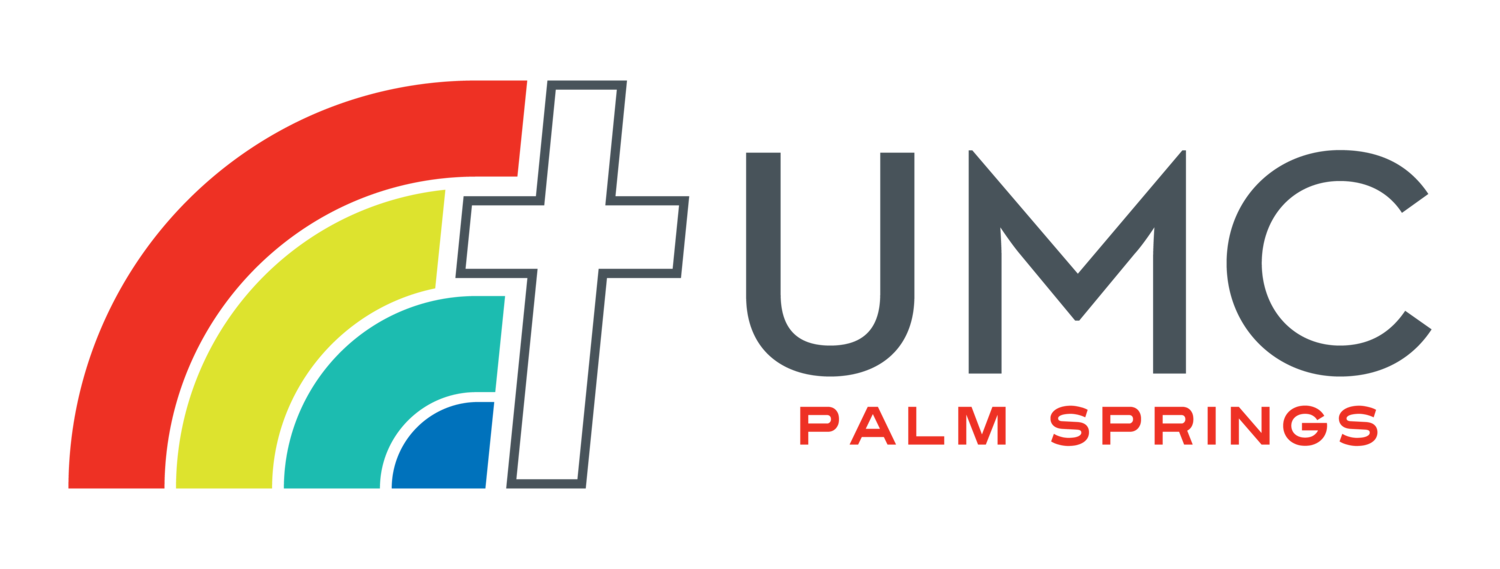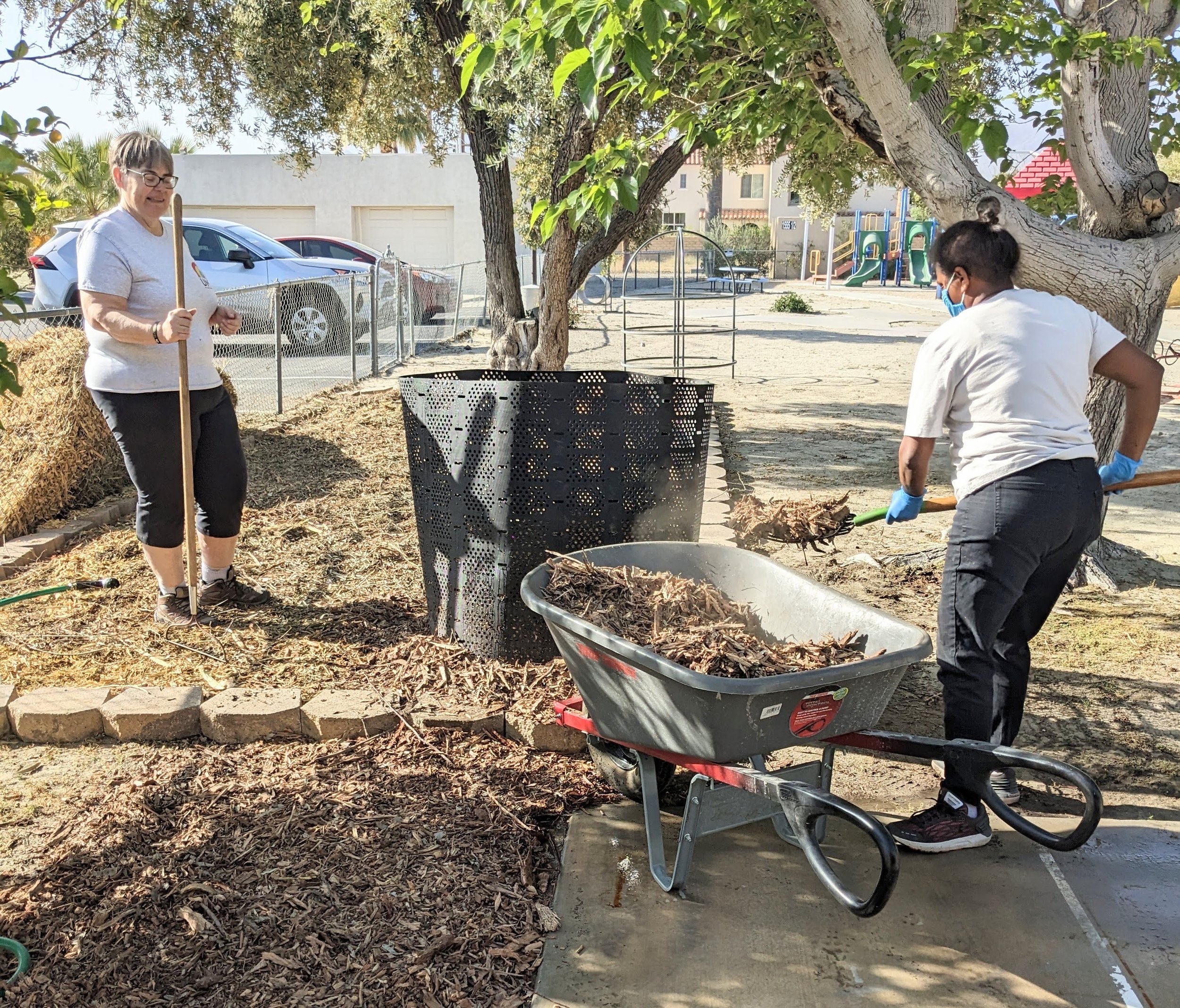
UMCPS Living Green
Helpful hints on reducing waste , reforming the Salton Sea, and other gifts in Preserving Gods Creation
UMCPS Composting Program
UMCPS Composting Program
The United Methodist Church of Palm Springs is excited to announce that Phase One of our composting program will begin on May 3rd at 7 am. This marks the first step in our effort to reduce organic waste and promote sustainability in our community.
Phase One of our composting program will focus on composting the organic waste generated by our Feeding Programs. This waste will be carefully sorted and processed to create nutrient-rich soil that can be used for gardening and farming.
Following the success of Phase One, we will move on to Phase Two, which involves composting the organic waste generated by our UMCPS congregation. This includes food waste, yard waste, and other organic materials. By involving our congregation in the composting process, we hope to educate and inspire others to take action and make a positive impact on the environment.
Phase Three of our composting program will be to involve the wider community in our efforts. We believe that by working together, we can create a more sustainable future for all. We encourage everyone to get involved in this important initiative.
If you are interested in becoming part of our compost crew, we invite you to attend our training sessions, which take place on the first Wednesday of each month at 7 am. This is a great opportunity to learn more about composting and how you can make a difference in our community.
For more information about our composting program, please contact the church office. We look forward to working with you to create a healthier, more sustainable future for everyone.
Conserve Water
-
Buy Recycled-Paper Products – Why it’s worth the effort
Products made from 100% recycled paper require much less water in their manufacturing than do those made from virgin paper. If your family goes through four rolls of paper towels a week, choosing recycled reduces waste significantly. Your one-year effect: 637 gallons of water saved. The effect if every household in the U.S. did it for one year: more than the amount of water that cascades over Niagara Falls in a day.
-
Water Your Lawn in the Early Morning or Evening – Why it’s worth the effort
If you irrigate in the middle of the day, evaporation prevents 14% of the water from reaching the plants’ roots. Watering the lawn in the early morning or evening can save the typical homeowner 87 gallons a week. Your one-year effect: 4,524 gallons of water saved. The effect if every household in the U.S. did it for one year: equal to nine times the annual rainfall in Seattle.
-
Use a Lower Setting on Your Dishwasher and Fill it up all the Way – Why it’s worth the effort
Turn off the Faucet While Brushing Your Teeth - Why it’s worth the effort: Brushing your teeth seems like a quick job, but before you know it, four gallons of water may have slipped down the drain. Your one-year effect: 2,880 gallons of water saved. The effect if every household in the U.S. did it for one year: more than four times the Mississippi River’s annual flow of water.
-
Turn off the Faucet While Brushing Your Teeth - Why it’s worth the effort
Brushing your teeth seems like a quick job, but before you know it, four gallons of water may have slipped down the drain. Your one-year effect: 2,880 gallons of water saved. The effect if every household in the U.S. did it for one year: more than four times the Mississippi River’s annual flow of water.
-
Use the “iTunes method” of taking shorter showers
Before you get into the shower, start playing a song on your phone and challenge yourself to finish showering before the song ends. No cheating by using “American Pie” or “Bohemian Rhapsody”!
-
Don’t use your garbage disposal
Garbage disposals can be good for the environment in that they save your food scraps from the landfill, but they also use quite a bit of water, which means disposals should be used sparingly during a drought. Instead, make your own compost bin!
-
Wash your car at professional car wash that recycles its water
Professional car washes use less water than you will with a hose at home. Look for an eco-friendly service center that recycles its water. A few here in the Coachella Valley are:
Elephant Car Wash
Desert Express Car Wash
La Quinta Car Wash
-
Salton Sea Information
For information on restoring the Salton Sea, go to: EcoMediaCompass.org.
Click on Salton Sea Restoration and Water Imports.
Easy Ways to Reduce Plastic Waste
-
Create your own zero-waste kit
One of the keyways to reduce plastic use is to think ahead. When you show up to a picnic without utensils or the local market without a reusable bag, you’re essentially forced to resort to single-use plastic products. To avoid this type of situation, keep a zero-waste kit on you: A reusable water bottle, a cloth shoulder bag, a stainless-steel straw or purchase a box of straws, a set of travel utensils, a reusable coffee/drinking cup. With these five items, you can effectively eliminate any need for single-use plastics. Keep your zero-waste kit in your car, in your bike basket, or on your person to ensure it’s always handy whenever you need it.
-
Choose cardboard over plastic
If you want to reduce plastic use, it’s important to think about alternatives. Cardboard is an excellent substitute that is sturdy and more eco-friendly. It’s easier to recycle cardboard than plastic. Given that paper products tend to biodegrade more easily, cardboard is much kinder to the earth post-recycle. Forgo the plastic packets and opt for boxed pasta or boxed laundry detergent to reduce the amount of plastic you purchase and have in your home.
-
Buy in Bulk
For many households across the globe, most of the plastic waste generated is in the kitchen. Whether you are a frequent food shopper with a hungry family or living single and buying based on need, the best ways to reduce plastic use is by cutting back on the amount of packaging you consume. Bags and boxes make quick waste, so it is always better to buy in bulk where possible and appropriate.
-
Learn how to correctly recycle plastic
You have likely seen the triangle-shaped recycling symbol on the bottom of cans or on recyclable boxes, but have you noticed the numbers inside the recognizable triple-arrows? Recyclables are rated using the ASTM International Resin Identification Coding System. The classifications range from 1 to 7, each number indicating the plastic resin out of which the product is made. Most recycling centers will collect #1, 2 and 5 plastics such as water bottles, milk jugs and food containers. Plastics classified as #3, 4 and 6 such as PVC pipes, tubing and Styrofoam are moderately recyclable. Products categorized as #7, such as nylon, acrylic and polycarbonate are virtually impossible to recycle.
-
Shop Local
Shopping at your local farmers market and small grocer is a win-win for everyone involved. You’re directly supporting business owners in your community, while likely reducing your plastic use by opting out of mass-produced goods. As always, when shopping, be sure to bring your own bag and container to avoid any need for a plastic bag.
-
And More
Replace plastic storage containers for glass or steel containers. When hanging out wash use wooden pegs instead of plastic ones. Most chewing gum currently on the market contains plastic. Try to buy less chewing gum and throw it in the correct recycling container. You can also opt for natural and organic chewing gums. Avoid using cosmetics that use micro-plastics, buy a biodegradable brush, and wear natural fabrics.
Contact us for more info!
Email us at info@umcps.org for more information.




